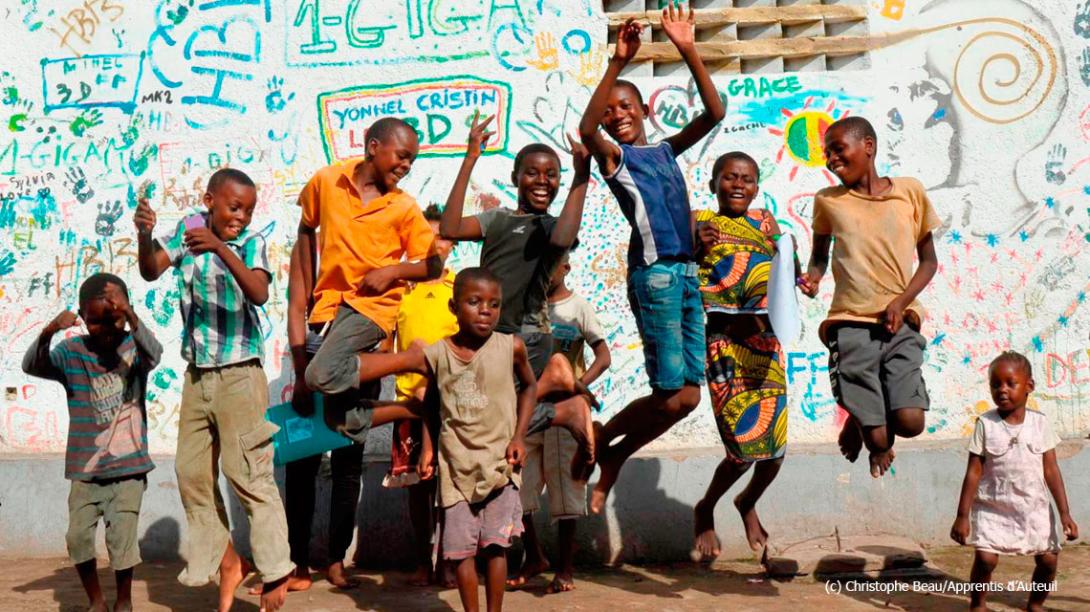
World Children's day : waht realities for street connected children ?
November 20 marks the day of the adoption of the Convention on the Rights of the Child (CRC), signed in 1989. The CRC is the most widely ratified international treaty in history, and obliges signatory states to implement laws and public policies for the realization of children's rights. However, ratification does not necessarily translate into respect and progress of these rights for vulnerable children, especially for children in street situations who are not directly covered by the Convention. On this day, we share the testimonies of our local partners about their commitment on the ground to guarantee these fundamental rights.
Today, our partners in the two Congos, REEJER (Réseau des éducateurs des enfants et jeunes de la rue) in the Democratic Republic of Congo (DRC) by video and REIPER (Réseau des Intervenants sur le Phénomène des Enfants en Rupture) in Congo-Brazzaville testify to the reality of street connected children in their countries and the prevention and awareness-raising work they do to enable children to reintegrate into their family environment and prevent other children from ending up on the streets.
Children in street situations, multiple realities
Generally speaking, REIPER considers a child to be in a street situation when he or she sleeps outside a family home and without adult supervision. However, as Joseph Likibi, REIPER's coordinator, explains, the term "street situation" actually encompasses different situations. Some children live on the street indefinitely and are completely cut off from their families, while others leave home for a period of time. In this case, children who turn to the street, often with the idea of earning money, intend to return home one day.
A process of social exclusion
Ending up on the street is the result of different processes of social exclusion, specific to the domestic, political and cultural contexts. According to REIPER, economic difficulties are one of the main causes of this exclusion. The lack of financial resources pushes parents to abandon their child. The child has no other solution than to turn to the street and support himself. In addition, conflicts between parents and the breakup of the family unit can also occur. In the DRC, Rémy Mafu, REEJER’s coordinator, recalls the phenomenon of children accused of witchcraft by the Revivalist churches. Held responsible for their family’s misfortune, they are rejected by their families and end up on the street. Finally, Rémy Mafu underlines the damage caused by the conflicts that have been tearing the East of the country apart for the last twenty years and that have increased the number of orphans.
The deprivation of rights as a result of living on the street
Once on the street, these children are deprived of access to development opportunities. As Joseph Likibi explains, "These are children whose social existence is denied; they are deprived of the exercise of their rights because they are invisible to decision-makers”.
In Congo-Brazzaville, many children are not registered with the authorities. Designated as "ghost children", most of them live on the margins of so-called formal society, such as children living on the street or indigenous children from fishing-gathering and nomadic families. These children are not recognized as "subjects of rights", explains Joseph Likibi, because the authorities' civil status censuses do not take this population category into account. As a result, the invisibility of vulnerable children deprives them of other fundamental rights such as the right to health (art. 24) and education (art. 28).
"A community problem, a community response”: awareness-raising work on children's rights
In order to prevent the phenomenon of street children and to promote their rights, our partners have set up action programs that include families as well as communities. For Rémy Mafu, it is a matter of informing the community in order to identify vulnerable children and to find collective solutions to guarantee the realization of their fundamental rights, starting with the right to be protected against all forms of violence (art. 19) and the right to housing (art. 27). In Brazzaville, REIPER conducts awareness-raising and training activities on the rights of the child for the community and actors directly involved with street connected children (orphanages, schools, police services, etc.). On the other hand, REIPER's member associations accompany families to strengthen their educational functions in order to reintegrate vulnerable children and to support them in order to prevent their children from ending up on the street again.
Towards the realization of the Convention for children in street situations?
Every year, REIPER organizes discussion panels with public authorities to increase their commitment to the respect of the rights set out in the CRC. In the same way, our two partners participate in the Universal Periodic Review (UPR) at the UN of their respective states, the DRC and Congo-Brazzaville, and issue recommendations for the implementation of children's rights.
These advocacy actions are even more necessary in the context of the current health crisis. In Kinshasa, REEJER alerts on the worrying increase in the number of children in the street, without any response from the State. REIPER deplores the trivialization of violations of the fundamental rights of children in street situations. Street connected children are more exposed to the risks of the latter, such as psychological distress, exclusion from essential health services and violence. Today more than ever, it is imperative to increase our efforts to protect and advance children’s rights.